-
What to Do In a Dental Emergency
It’s common knowledge that it’s important to see a dentist every six months for an exam and professional cleaning, but there are some situations that call for an additional visit to a dental clinic in Bel Air, MD. You should see an emergency dentist if you experience oral injuries, significant dental pain, or tooth trauma such as a dislodged tooth. While you’re on your way to the emergency dentist’s office, there are some steps you can take to ease your discomfort.

Toothache
Minor toothaches might not always require emergency dental care. Sometimes, they’re caused by food debris trapped between the teeth. Swish warm water around your mouth and use dental floss to gently clean between your teeth. Never apply aspirin to the gum tissues; instead, you can apply a cold compress to the exterior of your mouth. If your toothache doesn’t go away, you should call an emergency dentist.
Chipped or Cracked Tooth
Chipped and cracked teeth are not an uncommon problem. If possible, save the chipped pieces of the tooth. Rinse your mouth with warm water. If the gums are bleeding, apply a piece of sterile gauze for about 10 minutes to stop the bleeding. Then, visit an emergency dental clinic and be sure to bring the chipped pieces of your tooth. While you’re on your way there, you can apply a cold compress to the exterior of your mouth to relieve your discomfort.
Partially Dislodged Tooth
A cold compress can also relieve the pain of a partially dislodged tooth. If need be, you can take an over-the-counter pain reliever. These are only temporary measures; see an emergency dentist as soon as possible.
Avulsed Tooth
An avulsed tooth is one that has been completely knocked out of the mouth. It might still be possible to save a knocked-out tooth if you get to the emergency dental clinic in time. Pick up the tooth, holding it by the crown. Rinse it with water if it’s dirty, but do not scrub it. It may be possible to reinsert the tooth into its socket; be sure it faces the correct way. If not, place the tooth in a cup and cover the tooth in milk. If you do not have any milk, add water and a pinch of salt. See your dentist within an hour.
-
Save Your Tooth with a Root Canal
If you have a severely infected tooth, you may need to visit an emergency dentist in Bel Air, MD. An emergency dentist can attempt to save your tooth via a root canal procedure , rather than resorting to a tooth extraction. Root canal procedures are a safe, effective method of emergency dental care, and can prevent your infection from spreading while preserving the integrity of your infected tooth.
Prior to your root canal, your dentist will administer anesthesia. He may also give you a mild sedative to help you relax during the procedure. This will ensure that you remain comfortable and pain free throughout your dental care procedure. Once the anesthesia is in effect, your dentist will drill a small access hole into your infected tooth. He will use special dental tools to remove diseased or infected dental pulp, tooth nerve, and tissue from your tooth.
He will then fill the tooth cavity with medication to completely eradicate your infection. Then, he will seal the access hole with dental putty to prevent bacteria from entering. He may place a dental crown on the tooth to preserve its structural integrity and prevent a broken or chipped tooth.
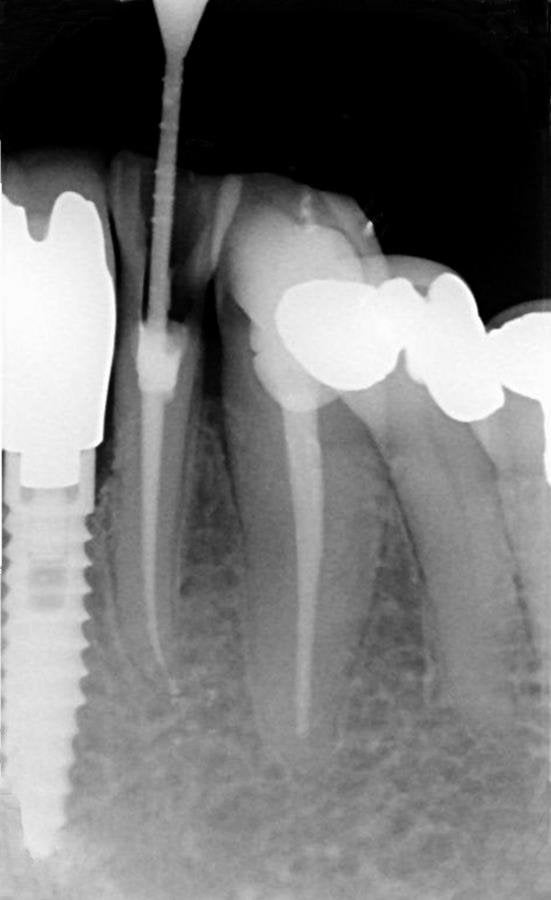
-
Are Dental Implants Right for You?
Your dentist may recommend that you get dental implants near Bel Air, MD if you have undergone a tooth extraction, have a severely chipped tooth, or are missing one or more teeth. Dental implants are a safe, effective cosmetic dentistry alternative to dentures and dental bridges. Here is a look at some of the reasons that you may want to discuss dental implants with your dentist.
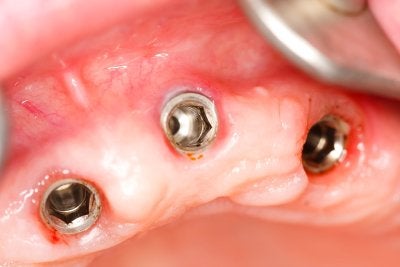
You are missing one or more teeth.
Your dentist can replace one or more missing teeth via a relatively simple cosmetic dentistry procedure using dental implants. A dental implant is a prosthetic tooth that is attached to a titanium rod that is implanted directly into your jawbone. The prosthetic tooth can be customized to match the size, shape, and color of your remaining natural teeth. This means that it looks almost unnoticeable when you talk and smile.
You are looking for an alternative to dentures or a dental bridge
Dentures and dental bridges are other cosmetic dentistry options that can be used to repair a chipped tooth or replace missing teeth. If you are missing all of your teeth, your dentist will recommend that you receive dentures. However, if you are only missing one or two teeth, dental implants are a better cosmetic dentistry solution. Because dental implants are anchored to the jawbone, they prevent many dental problems associated with missing teeth. Dental implants will ensure that you don’t suffer from jawbone loss, shifting teeth, or facial deformity. Dentures are not anchored to the jawbone, and thus do not prevent these problems.
You are in good physical health and committed to future dental care.
Your dentist will determine if you are a good candidate for dental implants. To be a good candidate, you must be committed to maintaining your future dental care. You will need to brush, floss, and use mouthwash at home. You must also visit your dental clinic at least every six months for dental cleanings and exams. You may not be a good candidate for dental implants if you have severe bone loss or advanced gum disease, smoke regularly, or have certain existing medical conditions.
-
Choosing a Mouth-Healthy Diet
One of the most important things you can do to maintain proper dental care in Bel Air, MD is to eat nutritious foods that improve your oral health rather than detract from it. Your dentist has probably stressed the importance of maintaining a proper oral hygiene routine to avoid tooth decay and the need for tooth extraction. Your meal and snack choices are just as important as brushing and flossing when it comes to maintaining oral health. Keep reading to learn more about choosing foods that are healthy for your whole body—including your teeth.
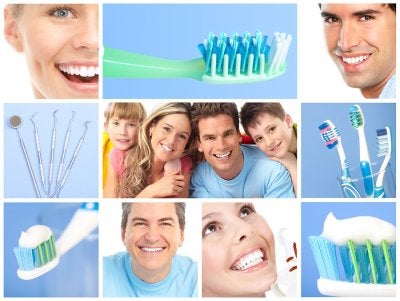
The Relationship between Sugar and Tooth Decay
Tooth decay occurs when the plaque that builds up around your teeth and mouth comes into contact with sugar from the foods that you eat. This interaction can cause acid to eat away at the teeth, forming harmful cavities. Eating a non-nutritious diet high in sugary foods can even affect your immune system, making it more difficult for your body to fight off infection and leading to oral health conditions such as gingivitis, advanced periodontal disease, and eventual tooth loss. Fortunately, tooth decay is preventable. In addition to a good dental care regimen including brushing your teeth with a fluoride toothpaste twice daily, flossing every day, and making regular visits to a dentist, you should eat a healthy diet and avoid added sugars in order to help keep your teeth and gums clean and healthy.
How to Choose Nutritious Foods
In order to choose nutritious foods for a healthy diet, be sure to read the nutrition facts and ingredients list for all processed foods that you purchase. This will help you avoid choosing products that are high in hidden sugars and that may not provide you with many vitamins or minerals. The most obvious culprits are candy, cookies, and pastries. Don’t forget to take into account what you drink as well. Soft drinks and juices typically contain an abundance of added sugar, and even some dairy products contain sugars that can cause tooth decay if they are consumed too often.
-
What to Expect When You’re Getting Dentures
Are you considering visiting your dentist in Bel Air, MD for dentures ? As one of the most common techniques in cosmetic dentistry, dentists have relied on dentures to restore missing teeth for decades.
When you visit your dentist for dentures, you can expect to completely restore your smile. If you are missing many teeth, you may feel understandably insecure. Missing teeth can make it difficult or even impossible to properly speak or eat. Additionally, having a full set of teeth is essential to your oral health and good dental care. With dentures, you can preserve existing healthy jawbone and maintain your face shape and structure. When you visit your dentist, he or she will first determine if you need complete dentures or partial dentures. Complete dentures are for patients who are missing all of their natural teeth. Conversely, a partial denture fills in spaces where multiple teeth are missing. Your dentist will also determine if you can have your dentures created right away or if you need to have your few remaining teeth pulled. In that case, your gums will need to heal before you can wear your new dentures.
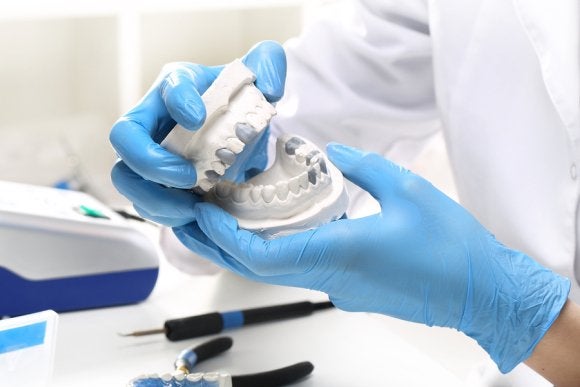
-
The Purpose of a Fixed Bridge
A dental bridge is just what it sounds like, as it bridges the gap between two teeth. If you are missing a tooth, dentists in Bel Air will likely recommend a fixed bridge. The bridge itself is composed of a prosthetic tooth that rests in the gap and is attached to two crowns that sit on top of the adjoining teeth. In many cases, the surrounding teeth are modified so that the dental crown will securely fit on top of the existing tooth. Dentists may recommend a bridge over a dental implant since it is a quicker form of treatment to replace a missing tooth.
The purpose of the fixed bridge is to prevent any issues with your remaining teeth and gums following the loss of a tooth. When a tooth is missing, teeth can drift towards the gap. This can create alignment issues. Additionally, when a tooth is missing, the bone can begin to deteriorate where the tooth once was. A dentist can place a bridge to help keep your bone and jaw structure in tact.
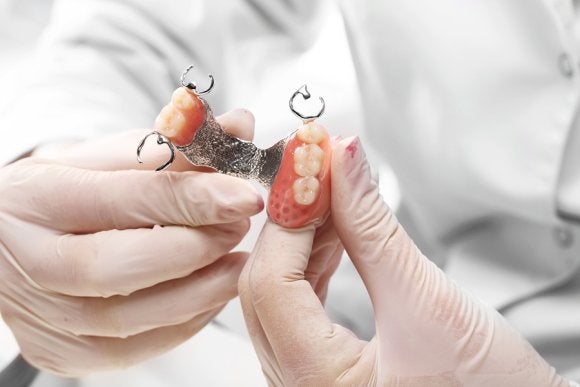
RECENT POSTS
categories
- Uncategorized
- General Dentistry
- Toothache
- Emergency Dentistry
- Family Dentistry
- Receding Gums
- Cosmetic Dentistry
- Veneers
- Gum Disease
- Gingivitis
- Dental Crowns
- Orthodontics
- Dental Implants
- Root Canal
- Wisdom Teeth
- Teeth Whitening
- Your Smile
- Composite Fillings
- Lumineers
- Dentures
- Invisalign
- BrightSmile
- Dental Bridge
- Abscessed Tooth
- Sealants
